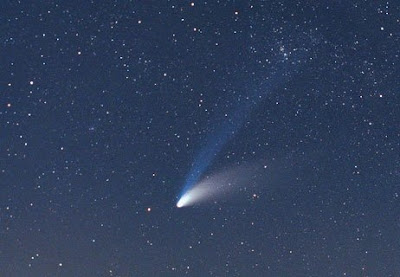Los Angeles, 1996.
It is a hot day. May, probably. You are on the freeway. 101 southbound. Driving from your small house in the Sherman Oaks suburbs to Hollywood.
You are listening to KROQ, as you often do. You have to stay up on what's popular, what the kids are into, what's selling. Plenty of what's on these days leaves you cold -- stock pop-punk, barely-OK pop, metal.
It's maybe 2 pm. A new song comes on. A synthesizer chord stretches on forever. A stuttering vocal sample bounces on top. You hear an insistent drum loop, the rhythm skipping as it's retriggered. The synthesizer bass is all rapid-fire 16th notes with a slow flanger. You think it sounds like helicopters, the ones passing overhead at night.
The vocals recite stream-of-consciousness lyrics, distorted and echoing:
The vocals recite stream-of-consciousness lyrics, distorted and echoing:
rioja rioja reverend al green deep blue morocco the water on stone the water on concrete the water on sand the water on fire smoke the wind the salt the bride boat coming dave in the water old man einstein on top of his house...
It's arresting. It's strange, it's not some typical verse/chorus la-la-la bullshit. You pull over onto the freeway shoulder and wait for the over 9 minutes of the track to end. The DJ says something about "Underworld" and "Pearl's Girl". You pull back onto the freeway and head for the record store. You buy a CD.
Your bands have come apart. Your marriage is coming apart. Your life is coming apart. You are going to quit your job. You are going to quit everything.
The song feels and sounds like the fugue state in your head. The blue-and-gray album cover looks like your life feels - some kind of modern, abstract smear. Maybe designed, maybe random.
The record is a revelation, full of contemporary sounds and long, abstract songs.
Your sun
Fly high
Your window shattering
Your rails
You're thin
Your thin paper wings
Fly high
Your window shattering
Your rails
You're thin
Your thin paper wings
You hear on the news that people have been shooting out windshields on the freeway. On your way to work, at the job you'll be quitting soon, a baseball-sized piece of concrete seems to appear out of nowhere and knocks a golf-ball-sized divot into your windscreen. At 65 miles per hour, in the morning rush. You manage not to kill anyone as you brake and swerve.
You think of the vocoded chants, the incessant grooves. The way the chords feel like breezes in the San Fernando valley's heat. You can't always make out the words, but you can always make out the feelings.
white room
sun room
shadow room
night transmitting cars
across the room
these things sent to dance
across the room
eye watching from your bed
returning to you
You listen to this record in your car. Your wife doesn't like it, but then, she doesn't like anything about you these days. You listen to it as you walk through the neighborhood at night, after she's gone for good.
You spend a lot of time running laps around Balboa Park. Thinking about everything. Trying not to think about anything. Words and deeds. Bad songs and failed bands. Your ideas and lack thereof. You wonder what you are going to do. Tonight. Tomorrow. Next year. With the rest of your life. Do you even have a rest of your life now?
You look up in the evening sky and see the Hale-Bopp comet, blazing, the size of your thumb. They say it only comes around every 2,500 years. Cultists are killing themselves over it, and you can understand why.
It is miraculous, mysterious, ominous, beautiful. A reminder there are more things in Heaven and Earth than dreamed of in our philosophy. A once-in-a-lifetime experience, inescapable.
It is miraculous, mysterious, ominous, beautiful. A reminder there are more things in Heaven and Earth than dreamed of in our philosophy. A once-in-a-lifetime experience, inescapable.
Your feet hammer the path. You glance up again. Despite everything, the ruins and the chaos, you know you are lucky. Lucky to be here. To see this marvel, day after day.
The album closes with a brief guitar instrumental, a palate cleanser before the echoing "Stagger".
cover your teeth
i love you
don't bite me yet
i believe in you
i found you shopping in europa
on wardour street
not phoning packwidth
guilty as sin
straighten
i love you
don't bite me yet
i believe in you
i found you shopping in europa
on wardour street
not phoning packwidth
guilty as sin
straighten
Everything is falling apart. The future is uncertain. The world is full of wonder.
Ain't it good to be alive?
and old man einstein crazy in his attic crazycrazycrazycrazycrazy crazycrazycrazycrazycrazy crazycrazycrazycrazycrazy crazycrazycrazycrazycrazy crazycrazycrazycrazycrazy crazycrazycrazycrazycrazy crazycrazycrazycrazycrazy crazycrazycrazycrazycrazy crazycrazycrazycrazycrazy crazycrazycrazycrazy
***
"Second Toughest In The Infants" isn't Underworld's best album -- that would be "dubnobasswithmyheadman", their debut. But "Second Toughest..." is my favorite Underworld album, because it introduced me to the band, and their arty take on electronica. It reminded me that weird can sometimes be commercially successful, or at least get airplay. It showed me how the most banal and boring of genres can provide a grounding for adventurous and bold work.
Whenever I hear "Second Toughest...", I am right back there on the path around Balboa Park, staring at the comet in the sky as I try to outrun my life. I am in my car, driving somewhere in the Los Angeles heat. I am still young, confused, and alive.
***
***




